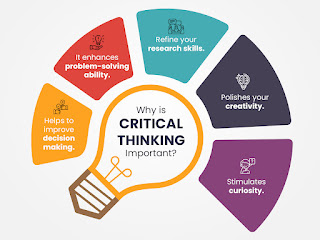Importance of Critical Thinking with lifetime illustrations
The importance of critical thinking in media consumption cannot be overstated, especially in Ghana where we are bombarded with information from various sources every day. Critical thinking helps us sift through this barrage of information, separating fact from fiction and making informed decisions. Let's explore why this skill is vital using examples from our everyday lives.
Firstly, let's talk about politics. During elections, politicians flood the media with promises and claims. As critical thinkers, we must question these promises, ask ourselves if they are feasible, and examine the track record of the candidates. For instance, if a politician promises to build 100 schools in a year, we should critically analyze whether this is possible and what it means for our communities.
Fact checking: Secondly, there's the issue of fake news and misinformation, which is rampant on social media platforms like WhatsApp and Facebook. Critical thinkers don't just accept every message they receive; instead, they fact-check, verify sources, and consult reliable sources before believing or sharing information. For example, before forwarding a message claiming that drinking garlic water cures COVID-19, a critical thinker would check with health experts to confirm its accuracy.
Next, let's consider media bias and sensationalism. Ghanaian media outlets sometimes have their own agendas, and they may twist stories or only show one side of the story. As critical thinkers, we must read or watch the news with a discerning eye, questioning the language used and looking for hidden biases. For instance, if a news report seems to unfairly criticize a certain political party without giving them a chance to respond, we should question the motives behind such reporting.
Lastly, advertisements play a big role in shaping consumer behavior. Whether it's on TV, radio, or billboards, advertisers try to persuade us to buy their products. Critical thinkers don't fall for every flashy ad; instead, they analyze the claims, consider whether they're realistic, and think about whether they really need the product. For example, if a shampoo ad promises to make your hair grow three times faster overnight, a critical thinker would be skeptical and do further research before buying the product.
In conclusion, critical thinking is essential for navigating the media landscape in Ghana. By questioning information, verifying sources, considering different perspectives, fact checking, and identifying bias, we can become more informed citizens and make better decisions for ourselves and our communities.



Comments